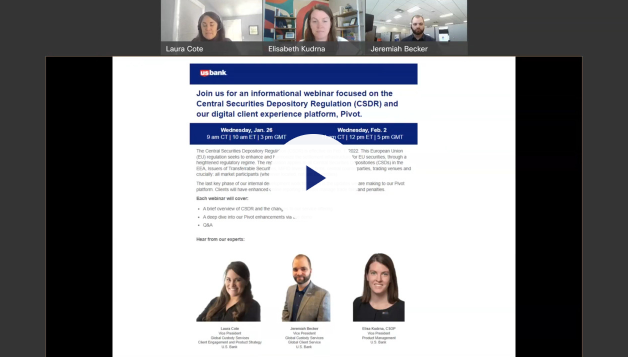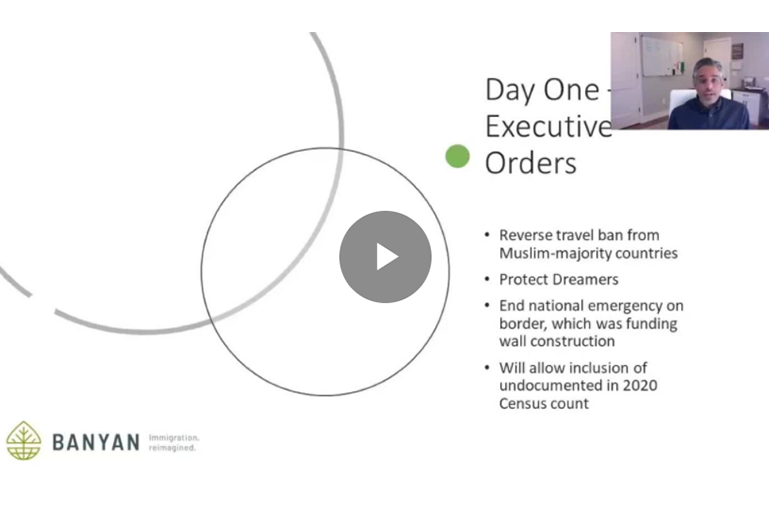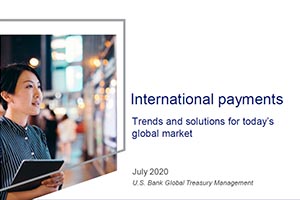The previous years presented numerous challenges for the investment industry that continue to have lasting effects worldwide. From our multifocal viewpoint as both a corporate trust and fund services provider in Europe, here are some of the trends, obstacles and opportunities we were seeing.
At U.S. Bank, we’re in a unique position of providing integrated fund administration, corporate trust and depositary solutions in Europe. This vantage point offers our team a broad view into multiple sides of the investment industry, so we’re sharing some of our observations to help you assess what the upcoming years ahead might hold.
We sat down with a roundtable of experts to dig deeper into the state of the industry in the wake of COVID-19, Brexit and other economic events. Learn what trends and opportunities are emerging that pertain to the corporate trust and fund services experience from our participants:
- Barry O’Brien, U.S. Bank Global Fund Services director of business development – Europe
- David Kubilus, U.S. Bank Global Fund Services Chief Commercial Officer – UK and Luxembourg
- Tom Cubitt, U.S. Bank Global Corporate Trust senior vice president – Europe
Q: What are some of the trends you’re seeing in Europe?
O’Brien: These days, there’s a definite blurring of the line between the world of regulated and unregulated vehicles. Based on investor demand, regulated fund structures are becoming more of the go-to vehicle of choice. The launch of the Irish Investment Limited Partnership rivals the Luxembourg SCSp structure and is receiving a lot of initial uptake in the market. Other trends we’re seeing include the growth of private equity and credit; continued growth of large hedge fund groups; a shift from active to passive ETFs; a heightened focus on environmental, social and governance (ESG) investing and choosing regulated vehicles in Luxembourg and Ireland; and more considerations around relationship pricing.
Q: What are some of the most common pain points for clients right now?
Kubilus: The pain point I hear most from clients pertains to the lack of quality in their service providers. Some are also having difficulty raising assets in a post-Brexit environment and adapting to ESG requirements and expectations. Another big challenge is managing multiple service relationships – both in-domicile and across domiciles.
O’Brien: Offshoring by service providers has been a trying experience for many asset managers over the recent years. Dealing with fragmented technology and dispersed regional servicing teams also creates complications. Some providers are simply too big – almost like factories – to provide the white-glove, hands-on experience managers need, especially when disruptions occur. And on top of all that, fee compression is continuing to affect all market participants and service providers – creating, essentially, an adapt-or-die environment.
Cubitt: Clients are trying to navigate the effect of the pandemic on certain industry sectors globally and manage any possible further downgrades in portfolios within existing transactions. And these factors seem set to continue. Regulation continues to bring focus on the securitization product, with the addition of new ESMA reporting requirements. Technology is also a concern. Clients need to see more automation from service providers to help speed up their decision making and ensure investors receive timely and accurate reports. And finally, as Ken said, fee compression is having a significant impact on all participants in the industry.
Q: How are providers addressing these pain points? Or rather, how should they be addressing them?
O’Brien: It’s important for providers to combine automation with disciplined data governance to give investment managers an edge. In our experience, we’ve seen that having a centralized client offering and a portal with a single sign-on greatly enhances efficiency and client satisfaction. Agile providers who prioritize digitization and automation will flourish, and, as we’re already starting to see, smart technology combined with years of experience will win out.
Kubilus: Successful providers address client challenges by leaning into quality and resisting less robust alternatives. Right now, it’s important to look at service relationship holistically in return for relationship pricing across geographies and find the right partners with the requisite quality, solution integration and knowledge.
Cubitt: There’s an ever-growing expectation to deliver platinum client service, and meeting that expectation requires the best people and the best technology at the best pricing levels. While I can’t speak for other providers, we’ve alleviated many client pain points by providing one-stop-shop solutions for investment managers in all aspects of their business – collateralized loan obligations (CLOs), managed accounts, funds, etc. We offer ESMA reporting as part of our collateral administration services on a CLO – or any securitization with an ESMA reporting requirement, actually. Then also, through Pivot, we provide a centralized client experience and portal with a single sign-on for all product offerings.
Q: What new opportunities do you foresee in the industry over the next year or so?
O’Brien: If you’re a more traditional hedge fund, it’s a good time to consider embracing private equity and private debt opportunities. Additionally, ETF offerings present a path to move away from active investment – so that’s worth considering as well. Emerging markets are thriving right now; and digital and crypto currencies, along with block chain, continue to attract capital and interest.
Kubilus: There continue to be many opportunities to invest in private asset classes – including debt – and to consolidate providers for a more streamlined, consistent investor experience. Projects are out there, it just a matter of finding the right ones that have enough appeal to spark the interest of investors. In addition, early adopters of ESG standard will be in line for large mandates, particularly from asset owners.
Cubitt: The CLO market remains strong, and we’re seeing a really busy period coming out of the challenges of past few years. Digital and crypto currencies and block chain, like Barry said, will also continue to be an area of focus and growth for the markets. Hopefully it’ll be easier for managers to choose the right service provider as we’re all able to engage more face to face again, assess specific needs and capabilities and share expertise in open conversation.
At U.S. Bank, we serve as a single provider for depositary, custody, bank account, domiciliation, corporate secretary, fund administration and transfer agency services across London, Ireland and Luxembourg. To learn more about our integrated offering, visit our website or contact us.


























































